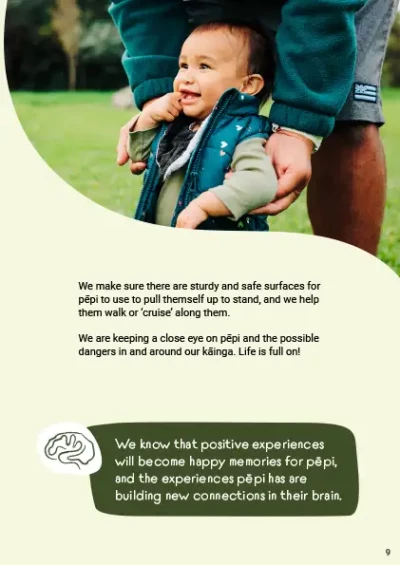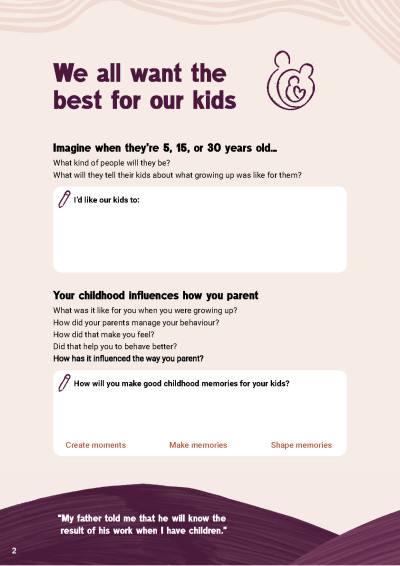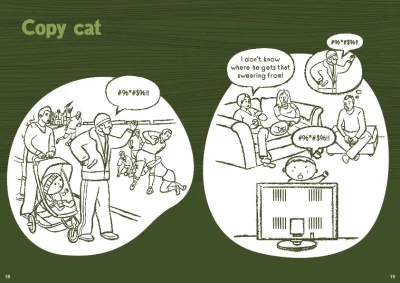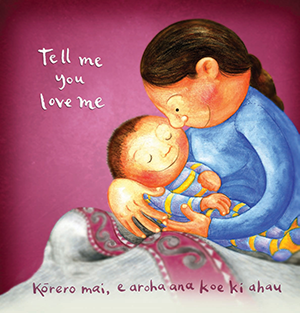
What can a child remember?
Memories can be implicit or explicit and can have long-lasting effects on a child. Helping them deal with negative events builds better memories.
Memories are the way that our past experiences are stored in the brain, and influence who we are and how we function.
Memories are created from all the sensory experiences a person has. Some will be physical (based on things our body’s experienced) – maybe breaking an arm or walking barefoot on a hot sandy beach. Other memories will be from cognitive experiences (thinking and learning) – perhaps how we learned to play a game of cards or work a video game. Many memories are based on emotional experiences – how we felt as a result of certain events.
Memories can have long-lasting effects
All of this means that from birth, a baby can be affected by anything they see or hear. So, being exposed to family violence can have a very negative and long-lasting effect on them.
The Whakatipu booklet Te Pihinga 3(external link) (page 9) says, ‘We know that positive experiences will become happy memories for pēpi, and the experiences pēpi has are building new connections in their brain..’
Ask whānau:
- What memories do you think your baby made in the last 12 months?
- If they could tell you about them, what do you think they would say?
In the Tākai Thinking about Parenting booklet(external link) (page 2), it asks parents to write down: ‘How will you make good childhood memories for your kids?’
- What memories do you have from your own childhood?
- What’s at the top of your list for your child to remember?
Create moments, make memories
Moments that whānau create for their child can be positive or negative and have the potential for greatly influencing their child’s future.
There are two types of memories: implicit and explicit.
Implicit memory
Implicit memory refers to things that can’t be consciously recalled but can affect later experiences. For example, a person’s own experiences of being parented can influence how they go on to care for their own babies.
Explicit memory
Explicit memories can be consciously remembered and described and usually start during a child’s second year.
Helping a child deal with negative events
If something stressful happens and a baby is upset or frightened, the way parents support them can shape how their memory of the event is processed.
Whānau can ease the stress of a traumatic experience – maybe a fright from a dog – by comforting and reassuring their child. Talking with them about a scary experience can help their child understand and cope with the experience better and also build a more accurate memory of the event.
When whānau do this, their child will remember and recall the love and comfort, as well as the negative feelings. This will strengthen the relationship between them and their whānau. It may also contribute to a child developing resilience – understanding that unhappy feelings can be made better.
Read the article Memory development for more help with this topic.
Helpful resources for whānau
-
Developing thinking skills – including memory
Zero to Three
Read this article from Zero to Three to learn about the many ways to nurture children's growing thinking skills from 12 to 24 months.
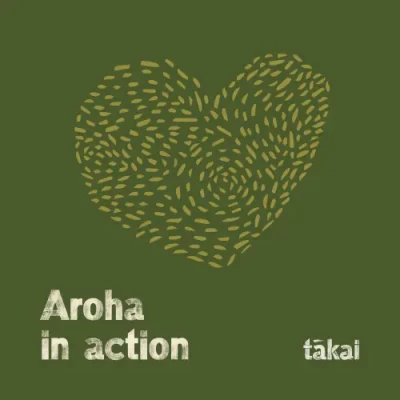 pdf 5 MB
pdf 5 MB
